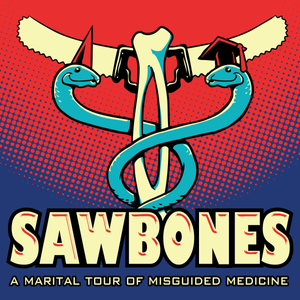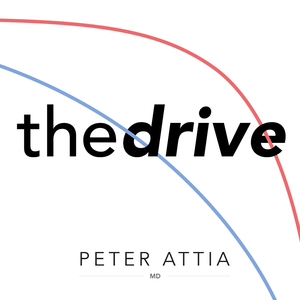
Breaking Down AA Myths and Facts
10/09/24 • 11 min
Are you looking to deepen your understanding of the AA 12-Step Program and peer support in addiction recovery? You've found the perfect video! In this engaging chat, I sit down with Jesse Ball to uncover the transformative power of peer support and the truths behind the AA 12-Step Program.
We dive right in by explaining the fundamental structure of Alcoholics Anonymous and other 12-Step groups like Narcotics Anonymous, Gamblers Anonymous, and so on, breaking down the processes that make these meetings so effective. Our conversation tackles common objections, debunking the myth that the 12-Step Program is a cult and addressing concerns around spirituality and belief systems.
As a bonus, Jesse shares his own journey from addiction to becoming a recovery support worker, highlighting the significance of having a sponsor to guide you through the 12 steps. Whether you're skeptical about needing a sponsor or simply curious about how to choose one, this video answers all your questions.
So, if you're in recovery, considering joining a peer support group, or just eager to learn more about the AA 12-Step Program, hit play and join us on this enlightening journey!
Bullet Points
Peer support groups like Alcoholics Anonymous (AA) and their variants are essential for recovery, offering a structured twelve-step program based on spiritual principles.
The twelve-step philosophy holds that human willpower alone cannot overcome addiction, emphasizing a spiritual approach to recovery.
Common criticisms of the twelve-step program include perceptions of it being a cult; however, the program is decentralised and members can leave freely at any time.
Sponsors within these programs guide newcomers through the twelve steps, and selecting a sponsor involves finding someone you understand and can connect with, often recommended to have at least one year of sobriety.
The actual work and transformation in the twelve-step program happen largely outside meetings, through the guidance of sponsors who help members adopt new ways of thinking.
Are you looking to deepen your understanding of the AA 12-Step Program and peer support in addiction recovery? You've found the perfect video! In this engaging chat, I sit down with Jesse Ball to uncover the transformative power of peer support and the truths behind the AA 12-Step Program.
We dive right in by explaining the fundamental structure of Alcoholics Anonymous and other 12-Step groups like Narcotics Anonymous, Gamblers Anonymous, and so on, breaking down the processes that make these meetings so effective. Our conversation tackles common objections, debunking the myth that the 12-Step Program is a cult and addressing concerns around spirituality and belief systems.
As a bonus, Jesse shares his own journey from addiction to becoming a recovery support worker, highlighting the significance of having a sponsor to guide you through the 12 steps. Whether you're skeptical about needing a sponsor or simply curious about how to choose one, this video answers all your questions.
So, if you're in recovery, considering joining a peer support group, or just eager to learn more about the AA 12-Step Program, hit play and join us on this enlightening journey!
Bullet Points
Peer support groups like Alcoholics Anonymous (AA) and their variants are essential for recovery, offering a structured twelve-step program based on spiritual principles.
The twelve-step philosophy holds that human willpower alone cannot overcome addiction, emphasizing a spiritual approach to recovery.
Common criticisms of the twelve-step program include perceptions of it being a cult; however, the program is decentralised and members can leave freely at any time.
Sponsors within these programs guide newcomers through the twelve steps, and selecting a sponsor involves finding someone you understand and can connect with, often recommended to have at least one year of sobriety.
The actual work and transformation in the twelve-step program happen largely outside meetings, through the guidance of sponsors who help members adopt new ways of thinking.
Previous Episode

Ibogaine: A New Hope for Addiction Recovery and Mental Health
Uncovering the Power of Ibogaine: A Game-Changer for Addiction Treatment [Psychedelic Medicine, Ibogaine, Addiction Recovery]
Are you ready to revolutionise your understanding of addiction treatment? In this eye-opening episode of Cracking Addiction, I sit down with the legendary Zappy Zapolin, founder of the Mind Army and renowned as the "psychedelic concierge to the stars." Together, we delve into the transformative world of psychedelic medicine, focusing specifically on the groundbreaking potential of ibogaine in addiction recovery.
🔥 Discover how ibogaine offers a radical shift in treating heroin addiction and other substance dependencies. Zappy takes us on a journey through the cultural and historical roots of this powerful African plant, used for centuries by the Bwiti people to connect with their ancestors. With current rising addiction crises and mental health issues, could ibogaine be the miracle we’ve been waiting for?
👀 Don't miss out on this riveting conversation that promises to challenge conventional wisdom. You'll learn why Zappy and his Mind Army are advocating fiercely for the decriminalization and legalization of naturally occurring psychedelics. Tune in to understand the profound benefits and the contentious debates surrounding their use.
💬 Be part of this transformative discussion! Like, share, comment, and subscribe to MedHeads to stay updated with the latest in addiction treatment breakthroughs!
📚 [Mind Army Official Website] https://mindarmy.org
#Ibogaine #PsychedelicMedicine #AddictionRecovery #MentalHealth #CrackingAddiction
This episode is perfect for you if you're committed to exploring cutting-edge treatments and alternative solutions to addiction.
Next Episode

To Test or Not to Test: The Vital Role of Urine Drug Screens in Addiction Clinics
Are you curious about the role of urine drug screens in addiction treatment? Wondering if they're necessary or just a hassle? Join me, Dr. Ferghal Armstrong, and the insightful Dr. Richard Bradlow as we dive deep into the debate around urine drug screens and their place in modern clinics. We'll uncover the science, the ethics, and the real-world impacts these tests have on patients and practitioners alike.
In this eye-opening episode, we explore whether urine drug screens help build trust or damage therapeutic relationships, and we debate their role in managing takeaways for methadone and suboxone patients. We'll delve into the latest guidelines, discuss the pros and cons, and share intriguing real-life cases that reveal the complexities of addiction treatment. If you’re passionate about addiction medicine or seeking to understand more about urine drug screens, this video is a must-watch!
Key Discussion Points:
To do or not to do? The impact of urine drug screens on rapport and stigma.
The critical role of urine drug screens in prescribing safe takeaways.
Real-world cases highlighting the necessity and consequences of screening.
Best practices for balancing patient care and harm prevention.
If you like this episode you’ll love
Episode Comments
Generate a badge
Get a badge for your website that links back to this episode
<a href="https://goodpods.com/podcasts/cracking-addiction-406541/breaking-down-aa-myths-and-facts-76047852"> <img src="https://storage.googleapis.com/goodpods-images-bucket/badges/generic-badge-1.svg" alt="listen to breaking down aa myths and facts on goodpods" style="width: 225px" /> </a>
Copy




